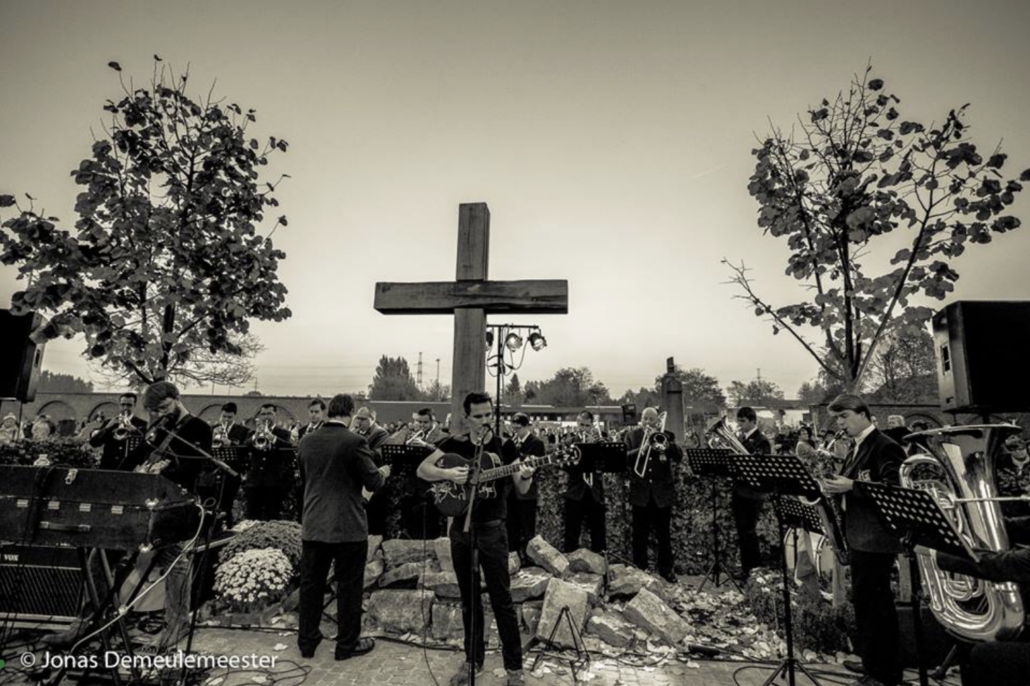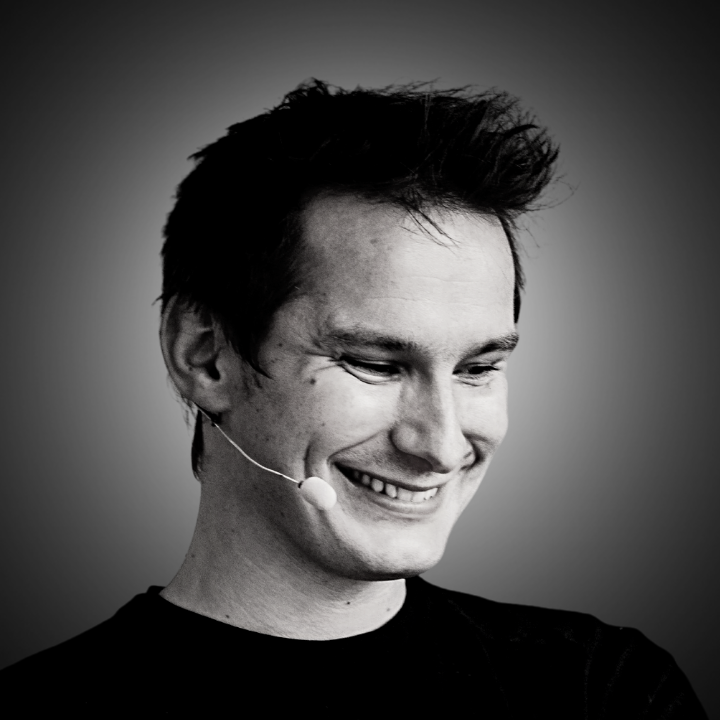Pieter Deknudt is a Belgian singer-songwriter who transformed personal loss into a movement. He is at the forefront of Belgium’s ‘Mourning Revolution’. We had the pleasure of asking Piete a few questions in advance of his appearance at the End Well Symposium on November 16th in Los Angeles.
“In good times, humans have a great talent for connecting. We get together, share emotions. But all of a sudden, when we’re grieving, we can’t seem to find the way to one another, although those are the moments when we need each other the most.“
Q: Death is often considered taboo. Was there a defining moment in your life that ignited your passion to discuss and address end-of-life experiences openly?
About ten years ago, four young people passed away in my hometown Deerlijk in Belgium within a period of six months. One of them was Robbie. He played the bass in a hardrock band called Highway Jack. He really was a local rockstar, and his band was way cooler than my band Zinger.
But in the years after his death, it struck me that no one seemed to be making any plans to commemorate him. And the more I thought about it, the more I got this feeling that our mourning culture had become some kind of wasteland.
So I wrote a song about Robbie and I wanted to play it for him at the cemetery on the first of November. But when I told people about my idea, they all said the same thing. They said: Music? At the cemetery? That doesn’t sound very respectful. But to me, it was the most respectful thing I could do for my friend. So I decided to do it anyway.
So a couple of months later, on the first of November, I was standing at the local cemetery, around sunset. Together with the local brass band, a couple of storytellers, my band and about 400 people who were curious to see this crazy new project…
And suddenly everything fell into place. It was one of the purest moments in my life. I realized that music and arts have the power to heal people. And since then, the idea spread to more than 150 cemeteries in Belgium, where local musicians, poets, storytellers pay tribute to the thousands of stories that form the very roots of our communities.

Q: Given your unique background, how does your work intersect with the end-of-life and grief conversation — and please give us a preview of what you’re talking about on the End Well stage.
In good times, humans have a great talent for connecting. We get together, share emotions. But all of a sudden, when we’re grieving, we can’t seem to find the way to one another, although those are the moments when we need each other the most. By using culture as a weapon, we tear down the walls between grievers and their communities.
Q: Cultures around the world have different practices and beliefs surrounding death. How has your cultural background influenced your perspective on the end of life and grief?
Since Robbie’s death, and my subsequent journey through grief, I’ve learned that death can bring focus and direction in your life. The idea that life isn’t endless comes with the idea that you have a given amount of time to make things happen. It makes you cut off the ballast and go straight to the essence of life. You can only see the stars when the sky is dark.
Since Robbie’s death I have never left my house without hugging my kids and wife. And I never lose my nerve when the wifi isn’t working.
Q: In your experience, what is the most significant societal norm or belief about death and dying that needs to be challenged or redefined?
Grieving people often lose up to 80% of their friends. Not because these friends don’t like them anymore, but just because they have no idea how to help their grieving friend. The answer is nevertheless too simple to seem useful. Scientist Parker Palmer once stated: The human soul does not want to be helped or fixed or saved. It simply wants to be witnessed — to be seen, heard and companioned exactly as it is.
Q: Is there a book, movie, piece of art, or another form of media that profoundly impacted your views on mortality?
Everyone who comes to the conference on the 16th of November should at least have seen 3 episodes of Afterlife, the mindblowingly beautiful series from Ricky Gervais, the comedian who wrote The Office. It’s about a man who has turned completely cynical after his wife’s passing. Throughout the series, he starts to see sparks of hope again. It made me cry my guts out and laugh my ass off. At the same time.
Q: How do you hope various professions and disciplines can come together to create a more human-centered approach to end-of-life care and experiences?
We should stop seeing death as a merely medical issue. It’s a human issue with medical aspects. It spans across a wide range of disciplines, so we should get all these disciplines together. ASAP.
Q: Fast forward a decade. If the objectives of the End Well Project are realized, how do you envision society’s attitude and practices surrounding the end of life experience.
Death will be considered a complementary part of life that can be looked at from countless angles. Connection and beauty will be used as a bazooka against pain and loneliness. Let’s get the #mourningrevolution started!
Pieter Deknudt will speak at the End Well Symposium on November 16, 2023.
Pieter Deknudt, founder of Reveil, is a Belgian singer-songwriter who transformed personal loss into a movement. Starting with a single concert in a hometown cemetery in 2014, his initiative now graces half of Flemish cities, where artists honor forgotten stories behind tombstones. Pieter is at the forefront of Belgium’s ‘Mourning Revolution’.
